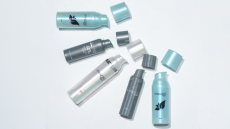RFID cost remains difficult to justify - for now
investment in radio frequency identification (RFID) by 2008. Other
sectors - such as personal care sector - will have a tough time
achieving such results, according to a consultancy report.
DiamondCluster International, a management consulting firm, says a one-year payback from an investment in RFID technology could be achieved by some indusries by 2008.
The one year timeframe is the bar set by many companies when considering whether or not to invest in new technology, says
"But while achieving that payback may be possible, don't expect RFID adoption to reach critical mass at that same pace," the firm stated in its study of the technology.
RFID has long been touted as the future of logistics for all companies by allowing retailers and suppliers to track goods throughout the supply chain. However high prices for tags and systems has held enthusiasm at bay. Privacy concerns have also limited its use at the consumer level.
The 2008 estimate was made by comparing various estimates for RFID market growth against conservative return on investment scenarios, DiamondCluster stated.
"Companies in the health services, particularly pharmaceutical drug makers, high-value consumer goods like electronics and apparel, some select retail channels, transportation, and government agencies are where we'll see the greatest success in the near term," stated Darin Yug, a co-author of the firm's report. "The lack of critical mass, however, in these and other industries makes it a tough investment decision."
Skepticism about RFID is easy to understand stated Mark Baum, one of the firm's consultants who works with consumer packaged goods (CPG) companies.
"There are plenty of RFID horror stories out there," Baum stated. "Companies can't get accurate read rates on pallets in the warehouse."
Although tag costs declined some 60 per cent in 2005, they haven't declined as much as some expected and the price is still too high for CPG companies with lower case and item values.
IT departments are also handcuffed in upgrading systems that cannot be adapted easily to process the huge amounts of new data RFID generates. Supply chain partners often will not adapt to the process changes RFID demands, Baum said.
"And the majority of RFID adopters will still have to maintain their bar code platform for the foreseeable future," he added.
Despite the current problems Baum believes the retail industry's adoption of bar codes in the 1970s and 1980s is an indicator of RFID's future. He is a former executive vice president of the Grocery Manufacturers Association.
"They insisted on labels that were inexpensive and easy to reproduce," he stated. "The bar codes and scanners had to better enable retailers to do labor scheduling and make life more productive for the cashier, as well as improve accuracy. And the industry focused on a solid business case,insisting that checkout systems would pay for themselves in two and a half years. And, that was before they started realizing the benefits of mining point-of-sale data for consumer insights."
The DiamondCluster report recommends that companies should take five actions to ensure the success of their RFID installations.
Companies must be willing to reaffirm a strategy for implementation to determine what goals they want. These goals include determining whether the technology will become a critical part of doing business in the future, and whether it will lead to productivity gains, improved processes or greater transaction accuracy.
"In most cases small-scale implementations, followed by rigorous cost and benefit analysis is a more effective than a 'big-bang' strategy," the firm stated. "Rationalizing the investment cycle is a must."
Companies must also reassess the readiness of their IT infrastructure. Connectivity and infrastructure costs can account for moe than 50 per cent of an RFID investment.
The business benefits must be explicity stated. A key benefit of RFID today is to reduce errors that occur at any point in the supply chain where human intervention is required.
"For example, benefits to consumer packaged goods companies might include greater supply chain integrity, product quality control, including expiration date and recall lot control and improved customer insights for marketing purposes," the firm stated.
Senior-level executives and suppliers must also support the project for it to be successful.
"Even Wal-Mart, whose clout with suppliers is legendary, has been challenged in influencing its entire supplier base to place RFID tags on cases and pallets due to the questions surrounding the return on investment assumptions," DiamondCluster stated.
Lastly firms should always look to improve their processes.
"Companies that are being compelled by influential partners to adopt RFID should view it as an opportunity to make long overdue process improvements than can increase competitiveness," the firm stated.









